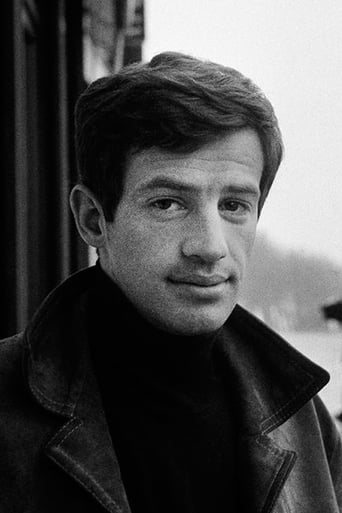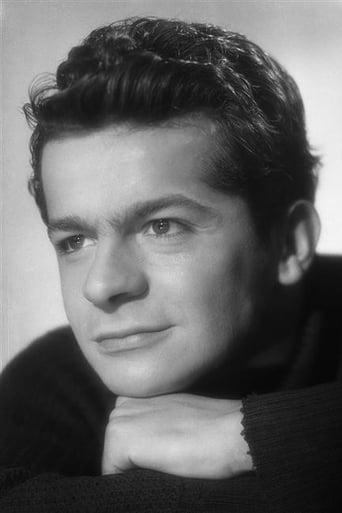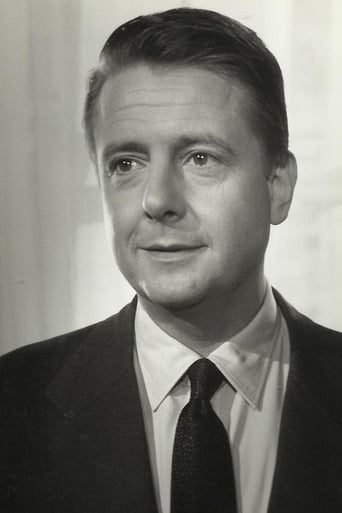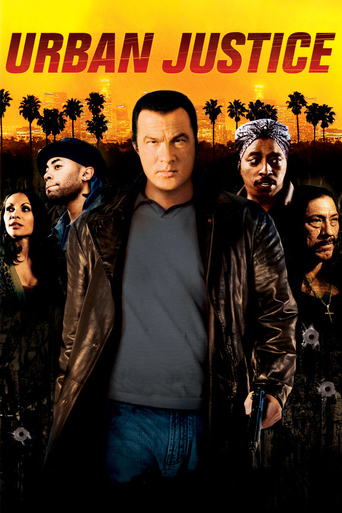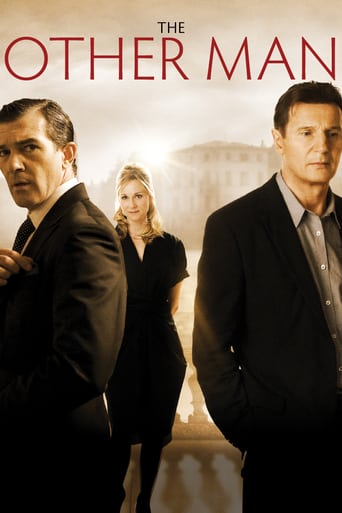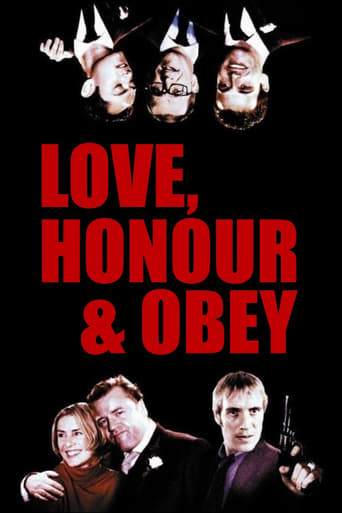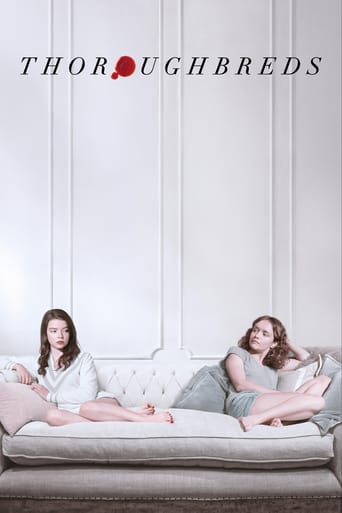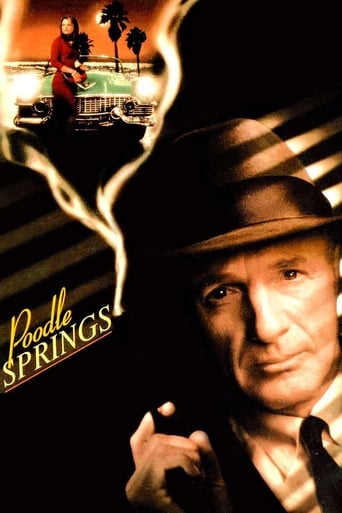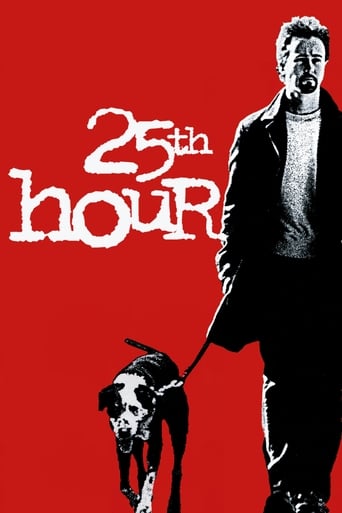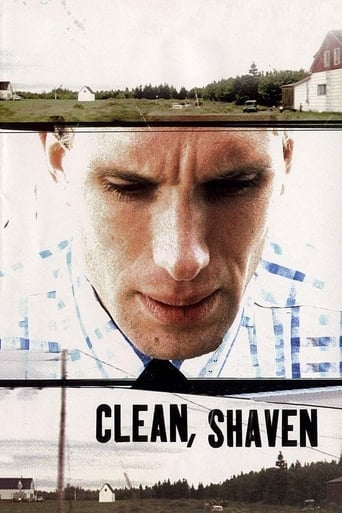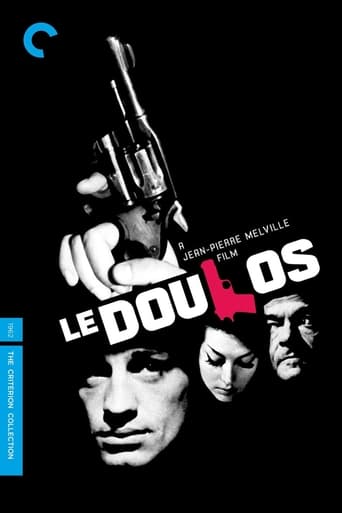
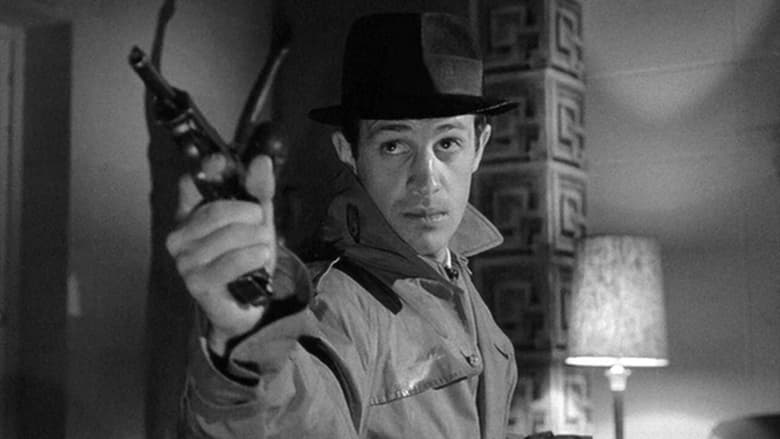
Le Doulos (1964)
Enigmatic gangster Silien may or may not be responsible for informing on Faugel, who was just released from prison and is already involved in what should be a simple heist. By the end of this brutal, twisting, and multilayered policier, who will be left to trust?
Watch Trailer
Cast


Similar titles
Reviews
Pretty Good
I am only giving this movie a 1 for the great cast, though I can't imagine what any of them were thinking. This movie was horrible
One of the worst ways to make a cult movie is to set out to make a cult movie.
Very good movie overall, highly recommended. Most of the negative reviews don't have any merit and are all pollitically based. Give this movie a chance at least, and it might give you a different perspective.
Near the end of Le Doulos Belmondo sits in a bar and explains the entire plot of the film to Reggiano. This takes ten minutes or more and involves numerous brief flashbacks which force Reggiano and the viewer to reassess all Belmondo's perverse and vicious acts of the last hour or so of screen time as an expression of profound friendship. This is a very dull scene. It's also a useful scene because it reveals the true nature of this film, not a French film noir besotted with the American 40s films, but a Miss Marple mystery in noir clothing. Melville has captured all the surface qualities of film noir. Check out the marvellous opening sequence of Reggiano walking to the beat of the title music (rather like Travolta in the opening sequence of Saturday Night Fever) along some railway lines to arrive at the kind of weird little house peculiar to french films. But, Melville's film doesn't seem to get hold of the deeper sensibility of the 40s classics in the way that Chinatown and Bladerunner do (for example). The central character is not experiencing a crisis of morality and/or identity in an incomprehensible and amoral world, rather he is a scumbag in a scummy world. It makes for unengaging watching.Maybe this is a world Melville wanted to depict, but in the end Le Doulos is a tiresome whodunnit. It's gritty, or more accurately misogynist and nasty, and often great to look at, but this is not a lesser known should be classic.
Le Doulos is a very good gangster noir from Jean-Pierre Melville. Like his other crime films its American influenced but with French style. It's really a recreation of the American film-noir of the 40's in 60's Paris. As such it's very stylised. Despite the time period, all of the actors look, act and dress like characters out of a hard-boiled movie from the 1940's. Trench coats and hats are the order of the day despite not being in the least bit in fashion in the 60's. The actors were all instructed to perform in a very controlled stylistic way that mimicked those old movies. This was seemingly something that Jean-Paul Belmondo found very unsatisfying, not surprising from an actor famed for working with Jean-Luc Godard whose style was extremely loose and off-the-cuff by comparison.Like noir, this one has a cast of characters where none are good in the traditional sense. It's about a thief who has just been released from prison. He immediately gets involved in criminal activity but is sold out to the police. He suspects his best friend is a police informer ('le doulos'). It's about betrayals, friendship and people assuming the worst of each other; the honour/dishonour of thieves. Of course, this being a noir, things do not run in a straightforward manner and there are several twists and turns before we reach the end. Look out also for an early cinematic nude scene featuring Fabienne Dali who also made a memorable appearance as a sexy witch in Mario Bava's Gothic horror film Kill, Baby Kill!
In Le Doulos I cant help feeling a sense of joy at these lackluster heroes. Not one of the characters is any way virtuous but there is a sense that they are men who value existence and grab life by the balls. Scorsese and Tarantino took their cue from the maestro Melville. If you're not convinced just look at the nightclub scene. Silien's entrance is pure cinematic cool. Maurice is a scumbag but you have to pity him and he does redeem himself somewhat at the end. This is a film without morals but it does have honour. A wonderful musing plot that twists and turns and is never afraid to be dark. It was my first Melville experience...unforgettable.
40 years ago very young Belmondo plays the police informer Silien who is about to retire as a crook and gets involved in a fatal affair of friendship and betrayal. Everybody gets what he deserves, mostly a mortal bullet.After successfully (brilliant but unrecallable scene on location in a Paris cafe) convincing the betrayed loser burglar Serge Reggiani that he did not betrayed him at all, Silien runs into a already prepared trap on the countryside. His trench coat catches a hole in the back and the last thing Silien thinks of is to cancel his last appointment with his girl friend.(Melville originally wanted another ending: Silien calling the police) Silien looks into the mirror of death, and soon doesn't see anything at all anymore. Silien need lie no longer. His expensive mansion equiped with the good and the bad taste of the late 50s becomes the mausoleum of the only clear thing in this almost last film of the serie noir: Finally everybody is dead. Who knows why ! There are not so many films of this make to come, only director J.P.Melville returned a few times to the subject: The story of a loner on his way down the drain.Nicolas Hayer (Orphée) behind the camera looks at Paris in a very winterly mood, we meet a few extremely corrupt characters in the shadow at the edge of nowhere, underworld pure. (Melville even sends a car over the edge as a help for those who think they caught the meaning of that all.)The story may be logic as a critic points out, but definitely untellable. But who cares. So one better just watches some highly entertaining and spirited sequences in black and white at his best, f.i. at the police station. Whatever they are discussing, one is fascinated by the almost 10 minutes of uninterrupted film shooting, or the great lighting job at the end, when Silien drives in his American convertible (rain is falling in the studios Rue Jenner)and walks along the gray bushes toward his mansion where he finds the already deadly wounded Reggiani who warns him of the hired killer behind the paper wall. Showdown at Siliens villa.Looking at the strange doing of Belmondo and Reggiani and Piccoli andJean Desailly and Fabienne Dali and Aime de March you soon lose the interest in understanding what is going on and why, you plainly watch strange actions in the very backyard of Paris and you feel a little sad they dont make films like that any more. And you also start feeling that you better like to meet Belmondo in life than a gangster looking like Belmondo. Who would I have liked to stay alive ? Maybe Reggiani. He is the better or rather at that time more experienced actor (and the better singer his life long).) But in this film he shoots a friend,and walks away. I never found out, why he shoots him. Well, the characters in the film are all double, all false. This is probably why Melville starts the film with a line from Céline: 'One must choose...die...or lie.' (By the way Céline not Melville ads: 'Me I live'.)Michael Zabel


